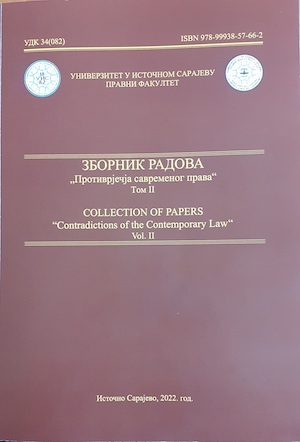Слобода изражавања и ауторско право
Freedom of Expression and Copyright
Author(s): Svjetlana Ivanović
Subject(s): Law, Constitution, Jurisprudence, Human Rights and Humanitarian Law
Published by: Правни факултет Универзитета у Источном Сарајеву
Keywords: Copyright; Freedom of expression; Copyright exceptions and limitations; Internet;
Summary/Abstract: The purpose of copyright is to protect creative expression of ideas and to encourage creativity. A work of authorship is individual creation which expresses author's opinion, attitudes and feelings, regardless of the quality or permissibility of the content. On the one hand copyright enables freedom of expression, and on the other hand, it is possible to ask whether freedom of expression can endanger copyright. The use of copyright work in order to make alterations can violate the right to integrity of the work, and the copyright protection could impose constraints on artistic freedom. The latent conflict between copyright and freedom of expression exists particularly in the online environment, in the era of social networks and various online platforms. Copyright enforcement measures on the internet, such as blocking access, filtering and removing content, raise the question of protecting one right and infringing the other. The European Union Directive on Copyright and Related Rights in the Digital Single Market imposes obligations on internet intermediaries, which could potentially restrict freedom of expression on the global network, an issue that should be decided by The Court of Justice of the European Union. It is questionable whether copyright is gaining a new role in the digital environment and is becoming and is becoming a tool for censorship on the internet. The analysis of the interplay between copyright and freedom of expression on the internet will be presented in this paper.
Book: Зборник радова "Противрјечја савременог права" Том II
- Page Range: 247-268
- Page Count: 22
- Publication Year: 2022
- Language: Serbian
- Content File-PDF

